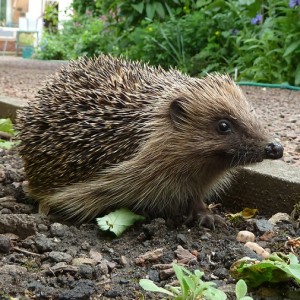Hedgehogs are declining: our State of Britain’s Hedgehogs 2018 report revealed that the population of the nation’s favourite mammal has fallen by half in the British countryside since 2000. This week we have published a free guide aimed at land managers to help halt the decline in urban environments. This is part of the Hedgehog Street project run in partnership with the British Hedgehog Preservation Society (BHPS).
 Our Hedgehog Ecology and Land Management guide is for anyone who manages green spaces within a town or city, including parks, schools, churchyards and recreational spaces. The illustrated booklet provides clear and detailed advice on helping hedgehogs, and the different ways land can easily be managed to become more hedgehog-friendly.
Our Hedgehog Ecology and Land Management guide is for anyone who manages green spaces within a town or city, including parks, schools, churchyards and recreational spaces. The illustrated booklet provides clear and detailed advice on helping hedgehogs, and the different ways land can easily be managed to become more hedgehog-friendly.
The guide also includes advice about a hedgehog’s year and their life cycle, to help increase understanding of hedgehog hibernation. It also identifies the threats they face through: habitat fragmentation; the impact of roads, pesticides and machinery; predators and disease. The guide was created with the help of the Suffolk Wildlife Trust.
Even though hedgehogs are listed as a UK ‘Priority Species’ under the NERC Act 2006, there’s no current legislation addressing the causes of their decline.
In order to help support wild hedgehog populations in both urban and rural areas, and ultimately halt the ongoing decline, we need to change the way we manage our land. Small management changes can dramatically improve areas of land for hedgehogs and other species, potentially reversing the dramatic decline we’re seeing and also enriching biodiversity more broadly.
Get your free hedgehog guide here on our Hedgehog Street website
